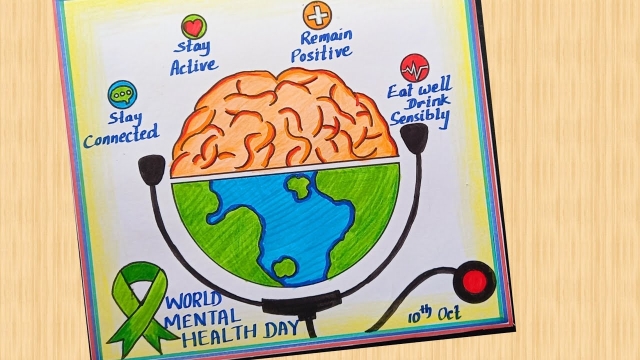
As many navigate the challenging road of mental health struggles, it is essential to recognize the significance of seeking support and guidance. Counseling and therapy serve as beacons of hope for individuals grappling with the heavy burdens of depression and addiction. These therapeutic avenues not only offer solace but also provide invaluable tools to navigate the complexities of these conditions.
In the realm of mental health, the interconnected struggles of depression and addiction can oftentimes feel overwhelming and isolating. By embracing the power of counseling and therapy, individuals embark on a journey of self-discovery and healing. Through tailored guidance and compassionate understanding, these professional resources empower individuals to confront their inner battles and break free from the grips of despair and substance dependence.
Types of Counseling
Counseling for depression and addiction can take various forms tailored to individual needs. One common type is cognitive-behavioral therapy, which focuses on changing negative thought patterns and behaviors contributing to depression and addiction. This type of therapy helps individuals develop coping strategies and improve their problem-solving skills.
Another effective counseling approach is interpersonal therapy, which centers on improving communication and relationship skills. It helps individuals address underlying issues that may be fueling both depression and addiction. By exploring past experiences and current relationships, individuals can gain insight into how these factors impact their mental health and addictive behaviors.
In addition, group therapy can be a valuable resource for those struggling with both depression and addiction. Being part of a supportive group allows individuals to connect with others facing similar challenges, reducing feelings of isolation and stigma. Group therapy provides a safe space for sharing experiences, gaining perspective, and receiving encouragement from peers on the road to recovery.
Read More
Treatment Strategies
When seeking support for both depression and addiction, integrating a combination of counseling and therapy can be incredibly beneficial. By addressing the underlying causes of these conditions through counseling sessions, individuals can work towards healing their mental and emotional well-being. Therapists trained in treating co-occurring disorders can offer personalized strategies to help clients navigate the complexities of managing both depression and addiction.
One effective treatment strategy is cognitive-behavioral therapy (CBT), which focuses on changing negative thought patterns and behaviors that contribute to depression and addiction. Through CBT, individuals can learn to challenge self-destructive beliefs, develop healthier coping mechanisms, and cultivate a more positive outlook on life. This therapeutic approach can empower individuals to break free from the cycle of negative emotions and addictive behaviors, leading to long-lasting recovery.
In addition to traditional therapy approaches, incorporating holistic therapies such as mindfulness meditation, yoga, and art therapy can provide a well-rounded treatment plan for individuals battling both depression and addiction. These complementary strategies can help individuals connect with their inner selves, reduce stress, enhance self-awareness, and foster a sense of purpose and fulfillment in their recovery journey. By embracing a holistic approach to treatment, individuals can find balance and healing on multiple levels, supporting their overall well-being.
Overcoming Stigma
Stigma surrounding seeking help for mental health and addiction issues can act as a barrier for many individuals. People often fear judgment, discrimination, and misconceptions from others, which can prevent them from reaching out for counseling and therapy.
Educating ourselves and others about the realities of mental health and addiction is crucial in breaking down these harmful stigmas. By sharing personal stories, advocating for understanding, and promoting empathy, we can create a more supportive environment that encourages individuals to seek the help they need.
It’s important to remember that seeking counseling and therapy for depression and addiction is a brave and necessary step towards healing and growth. By acknowledging the courage it takes to confront these challenges and by offering support rather than judgment, we can help create a more accepting and compassionate society.
